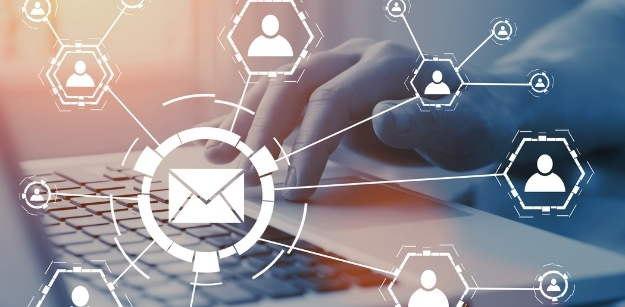Being a freelancer or online business owner is not easy. The technological advancements, the pandemic, but also the economic crisis are all factors that play an enormous role in careers worldwide.
To be ahead of the game, you must understand all the necessary updates in your industry, news from your clients, and useful insights that can help you structure your marketing plan.
The old traditional email is your best friend in this kind of scenario, but you need to know how to keep it straightforward to use it most efficiently. Every day hundreds of emails arrive in your inbox, and you must keep them organized.

This can significantly impact your work’s productivity and reduce the procrastination that most people deal with in their freelancing career.
There are many email services available on the market. Whichever one you use, the following advice will help you keep your email in check and clean out all the unwanted emails that spam your inbox. Dedicate some hours to this process, and you will feel like a warrior.
No, really, I tried it.
1. Take Action When You Read an Email.
Freelancers and online business owners receive tons of emails every day. After some days, it can be uncontrollable to deal with such a volume in your inbox. This simple tip can dramatically increase your workflow but also your productivity.
Focus on taking action after you read an email. If you’re prone to reading the same emails over and over, it’s time to stop. Don’t read emails and deal with them later. Make some time in your daily schedule to read your emails.
When you read a new email, label it; if you want to deal with it later, delete it, if you are not interested, or archive it if you want it, but no action is required. This means you have only one chance to act on each email: the first time you read it.
By making this a habit, you will avoid reading emails repeatedly and make the process much faster.
2. Use a Separate Inbox for External Email.
Having three separate inboxes is another excellent tip for organizing your email. Use filters to send into three different folders your incoming emails: one for external emails (anyone outside your company), another for any emails you are CC’d on, and the last one for all internal company emails sent directly to you.
- Inbox
- Inbox – External
- Inbox – CC
This is an excellent way to manage the energy and time you put into processing emails because you can take care of external emails if you want to without wasting time searching them in your inbox.
3. Avoid Checking your Email in the Morning (or at Night).
Another tip is to reread the title of this paragraph. Yes, “Avoid Checking your Email in the Morning.”
There are multiple reasons why this could be a wrong idea. It can be more time-consuming than you expect, it starts your day with other people’s priorities, or it can distract you from your “real” work.
The reason behind that is that morning email replies show people you’re available at that time, encouraging them to send you emails and expecting responses on future mornings.
The same applies to answering emails late at night. As a freelancer or online business owner, this sends a message that you don’t mind working late at night.
Don’t get me wrong. It is not a problem working late at night, but you can have others’ businesses as a priority by answering all these emails.
4. Check Email First Thing in the Morning.
To contradict what I said earlier, ultimately, I want to add this opposing idea of checking your email first thing in the morning. I do this without fail, even on weekends, and many people would argue that’s a bad thing.
But apparently, it works for me.
Checking my emails as soon as I wake up helps me prepare for my day. I can ensure there are no emergencies I need to deal with and catch up on my colleagues’ work overnight.
During COVID, remote working became popular, and it is useful to stay on track with other colleagues, especially when they are worldwide.
Freelancers or online business owners who may have customers worldwide could follow this tip to better organize their workflow.
You don’t generally need to reply to any emails first thing in the morning, but checking your inbox helps you to be prepared for the day ahead.
It also means you can confidently start work when you get to your desk without having your inbox open because you already know what’s in there.
5. Unsubscribe from newsletters that haven’t won your attention.
Email marketing is huge in 2020, with more sophisticated tools to grab your email address. The problem is that not every newsletter will provide you with value.
If this is the case, here is a tip for you.
Search your email for the word “unsubscribe.” It will reveal most of the newsletters you subscribed to, plus the spammy ones you didn’t.
Now unsubscribe from 90% of them.
Newsletters keep falling into your inbox like garbage into a garbage can, which means you have to find a way to treat your inbox efficiently.
That newsletter that is irrelevant to your interests, and that one which just tries to sell you things you can’t afford, and you didn’t even sign up for.
Don’t let them sit in your inbox because it will grab your attention from more important things in the future.
Push this unsubscribe button and watch the magic happen in front of your eyes.
6. Keep Your Emails Short.
The way you write your emails can influence the emails you receive. The number of emails you send and each one’s length can make a difference in how many you receive. After all, you are sending an email to get a reply.
If you have to send an email, keeping it short can reduce the reply’s length. You’ve probably noticed that long emails with many topics to discuss, get back with plenty of content to read.
That’s a great thing only when you catch up with a friend. You don’t need to deal with it every day with your inbox.
Try keeping your emails simple and focusing on just the essential facts, and your recipients will be more likely to do the same.
7. Don’t Write Open-Ended Emails.
Another way to craft better emails is to avoid open-ended questions. Try to make your email conversations faster and more efficient.
The strategy is to offer an option when setting up a meeting or a call, rather than leaving it open for suggestions. If you suggest a time and place in the first email, your recipient can simply say yes or offer a different solution.
This makes the process much faster and usually requires fewer mails to agree.
8. Turn off email notifications.
Finally, I would encourage you to open your inbox and reply to emails, max two times a day, with a couple of hours between each session. When you’re done, close it.
You will waste far less stress and time on email when it becomes a process where you dedicate a specific time twice a day rather than 14 times a day.
Moreover, if you want to engage with social media, go there. There is no point in receiving more emails from platforms that have nothing to do with your email. You can check Twitter and Facebook directly if it’s important to you.
Email notifications for things that aren’t happening in the email aren’t necessary, and you know you will ignore most of them anyway.
The takeaway
Being a freelancer or an online business owner during a pandemic is not an easy task. Focusing on tasks that matter is the number one priority. Some emails may be in this category, but not everyone for sure.
To ensure that you keep track of the crucial processes, check your email at certain times of the day, unsubscribe from lists that are not relevant to your current interests, and make subfolders dedicated to different categories of emails.
These are some of the tips that helped me declutter my email and have the opportunity to increase my productivity to an unprecedented level.
I hope you found some of these tips helpful. I can’t wait to see what you came up with to declutter your email. Share your thoughts and let everyone know your little secret that will change our email world.



